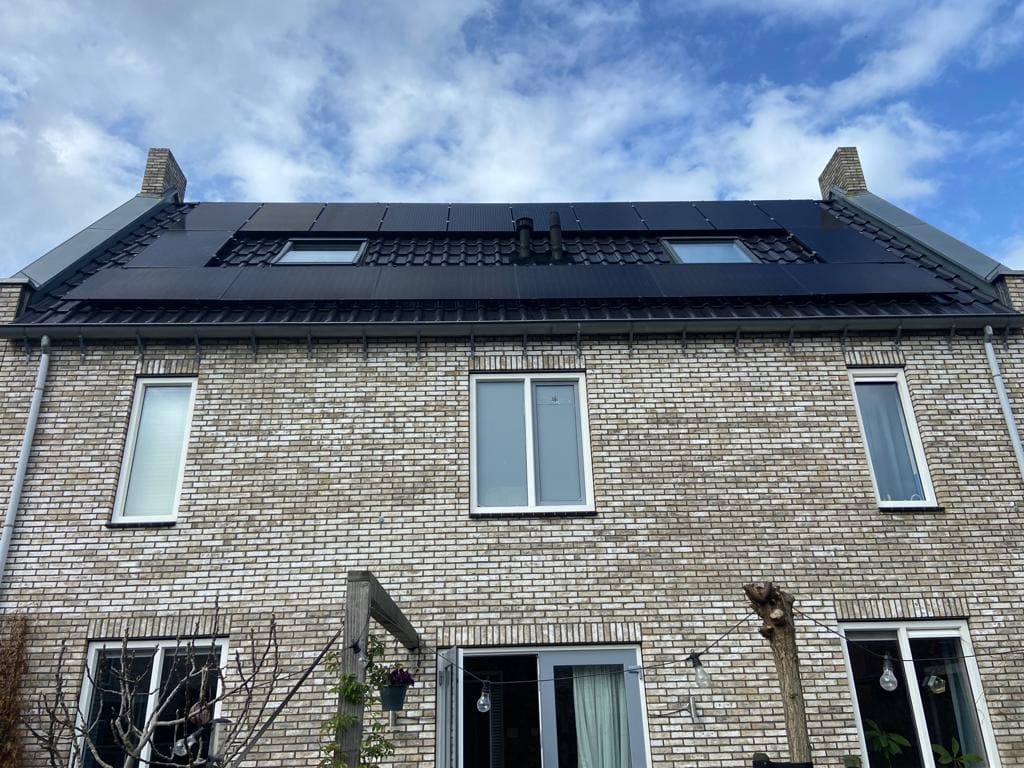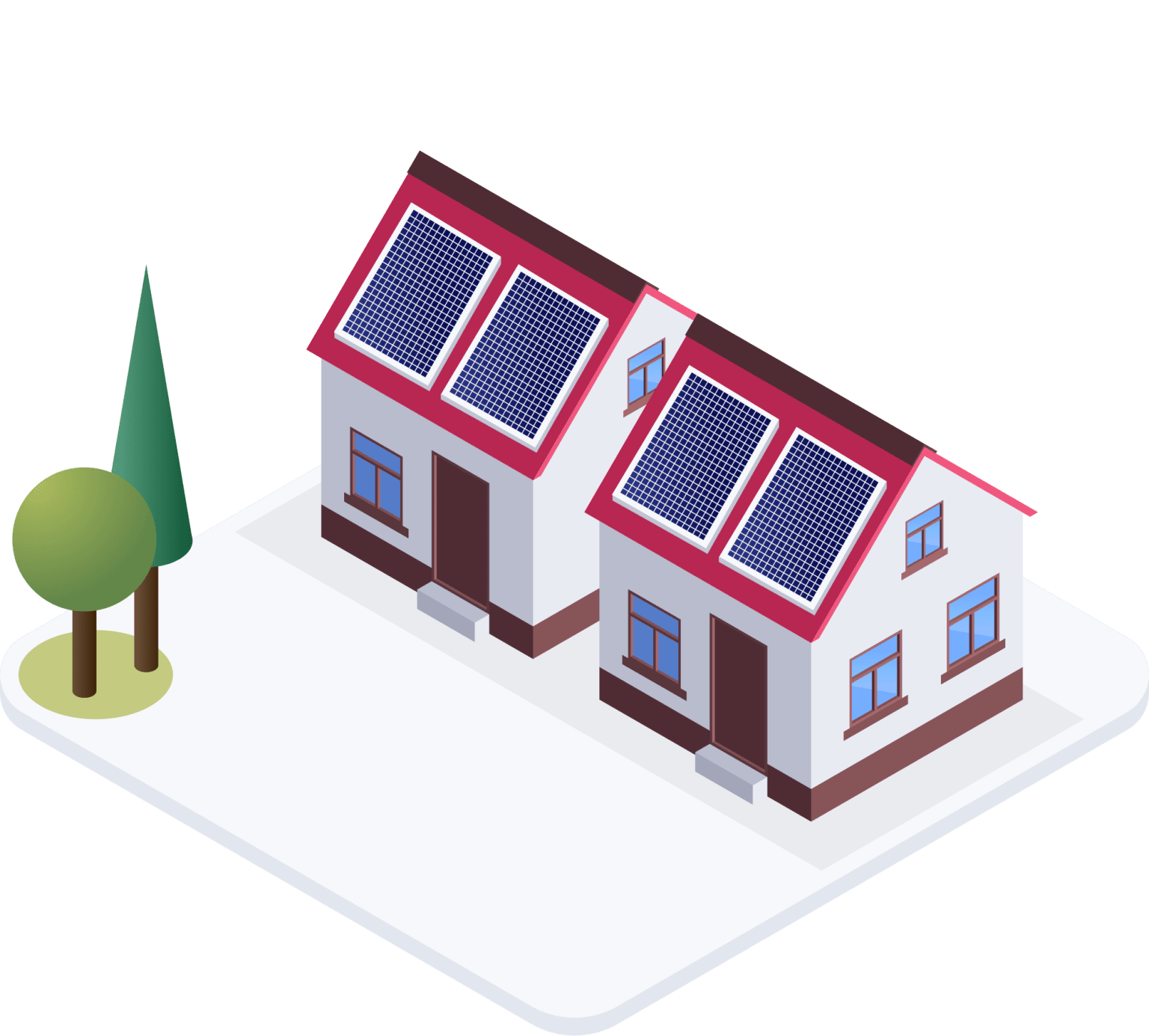
Want to save on your energy bills? We install high-quality glass-glass solar panels on homes and other (business) roofs in the Netherlands. Mostly in the surrounding area of Zwolle. Households can save an average of €750 a year with solar panels.
Do you choose Shift to Solar's solar panels? Then you are choosing a sustainable investment, a fine collaboration and a very attractive return. So you will enjoy the sun even more.

More and more roofs in Zwolle have solar panels. But how do you know whether your roof is suitable? Factors such as the orientation of the roof, the pitch and the condition of the roof play a role. If a roof needs renovation, it will first have to be reinforced or replaced. Also, there should be no asbestos in the roof.
Our advisers will be happy to visit you to assess the roof, advise you on the ideal location for solar panels and calculate how much you can save with them. That way, you quickly know where you stand.
We provide roofs with glass-glass solar panels with integrated solar cells. One of the best solar panels on the market, which has to stand out for its high efficiency, use of high-quality materials and long service life.
We also offer flexible solar panels. The advantage of these flexible panels is that they can be adapted or integrated to almost any surface. Think roofs, facades, campers, boats or other locations.
Shift to Solar is the market leader in solar canopies and sustainable solutions. We not only offer solar panels in Zwolle, but also solar carports and bicycle parking throughout the country. And because most of the solar panels are in stock, we can deliver quickly. We have good agreements with experienced installation companies that can install the solar panels quickly.
If you want to have solar panels installed, contact us for a tailor-made, no-obligation quote. You can do this via our fixed telephone number 0529-700214 or by leaving your details below. We will then contact you by mail or phone.
The average payback period for solar panels is currently 7 years. The payback period of solar panels is determined by the balance between yield and cost. This means that the exact payback period of our glass-glass solar panels depends on: the costs incurred, the amount of sunlight the location receives, the power output of the solar panels, the energy price and any subsidies or financial support.
Our glass-glass solar panels offer you higher efficiency and durability than standard glass-film solar panels anyway. This can lead to a 25% higher energy yield and therefore a shorter payback period.
Solar panels these days have a long lifespan; they last about 25 years on average. However, it is important to remember that the inverter will probably need to be replaced during the lifetime of the panels. We offer a product warranty and a power warranty of no less than 30 years. Within this period, we guarantee good service and maintenance.
Solar panels remain a cost-effective choice despite the phasing out of the net-metering scheme. With an average payback period of 7 years, they offer a sustainable and cost-effective solution to generate green energy and reduce your electricity bill. Imagine that after 9 years, at worst, you will have saved enough on your electricity costs to recoup your investment. Since solar panels last about 25 years, the energy they generate in the remaining 16 years is pure profit. This makes solar panels still an interesting option even if you can no longer fully balance your bills. By investing now, you will benefit from the current net-metering scheme for longer.
Various corporate subsidies for solar panels make the investment even more attractive:
SDE ++ Subsidy (Large consumers)
The Sustainable Energy Production and Climate Transition Incentive Scheme (SDE ++) is aimed at encouraging the switch to sustainable energy production. Companies receive a fixed amount per kilowatt-hour (kWh) generated over a 15-year period, which helps finance the switch to renewable energy sources such as solar panels.
ISDE for business users (Small consumers)
The Renewable Energy and Energy Saving Investment Subsidy offers €125 per kW of combined peak power to make commercial buildings more sustainable with small-scale solar panel installations.
Investment deduction
This scheme consists of several deduction options, such as the Energy Investment Allowance (EIA), Environmental Investment Allowance (MIA), Random Depreciation of Environmental Investments (VAMIL) and Small Scale Investment Allowance (KIA). Companies can deduct part of their investment costs in solar panels from tax, leading to tax benefits.
Saling scheme
This is a scheme whereby companies can 'net' the electricity they generate with their solar panels but do not use themselves, by feeding it back to the grid. They then receive compensation equivalent to the price they would normally pay for that electricity. This scheme will be phased out from 2025.
"*" indicates required fields